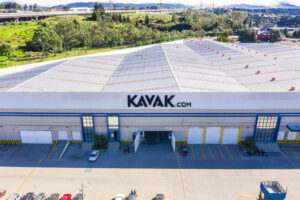
Por Jacob Atkins
June 3, 2019
Contxto – With 49 senate votes, Argentine tech startups have much to gain following the approval of the Knowledge Economy Law on May 22. Beginning in January 2020, this new policy will override and expand the Software Law to attract more investments, create jobs, and increase exports.
As the Argentine peso diminishes in value, the jurisdiction hopes to allure new investment to the country. At the same time, it aims to create 400,000 additional jobs in the “knowledge sector” while increasing the value of exports to US$15 million by 2030.
New benefits include reduced labor costs, fewer restrictions for company creation, export incentives, among other advantages, for “intellectual” industries. These range from computer science, AI, aerospace, nanotechnology, biotechnology, geology, audiovisual, among others.
Today, exports from these areas are only worth US$6 million with around 446,000 jobs.
Despite Argentina experiencing a 6.7 percent drop in knowledge exports in 2018, global competition is nonetheless rising. Moreover, many Argentines depend on this sector for their livelihood. Keeping this in mind, the Knowledge Economy Law seeks to boost technology jobs in addition to supporting highly qualified human capital.
Today, there are an estimated 3,500 companies in the Knowledge Economy sector. Based on this, there are around 215,000 employees generating yearly salaries of US$9 million. After agriculture and automobiles, it is Argentina’s third most active economy in the country, according to Luis Galeazzi.
“The knowledge economy is growing all over the world,” said Galeazzi, the executive director of Argencon, an organization that mobilizes knowledge economy players and promoted the new regulation. “We have a very powerful nucleus In Argentina.”
To reiterate, the Knowledge Economy Law is a continuation of the Software Promotion Act from 2003. This new policy covers more areas, such as technology, biotechnology, nanotechnology, agrotech, entertainment and creative industries, etc.
For some, Argentina is experiencing structural problems, such as poor macroeconomics, low investment rates, high taxes, etc. While some experts believe that the Knowledge Economy Law won’t allow Argentina to participate in the “big leagues,” Galeazzi disagrees. He says that the law “gives us fiscal and regulatory stability for 10 years and benefits that did not exist.”
“We are arriving late,” said Galeazzi. “It is difficult for us to get on the train, but at least now we are in the race.”

-JA

Por Yanin Alfaro
February 17, 2026

Por Israel Pantaleón
February 17, 2026

Por Stiven Cartagena
February 13, 2026